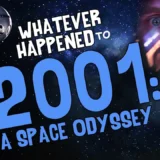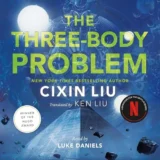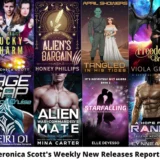Well, it looks like there is a deal to be had with NBC. Right now the lawyers and I are waiting for a draft proposal of our verbal discussions/agreements. Then we’ll review. I’ve yet to get through that stage of a negotiation without some changes being necessary, but rarely, if ever are those of the deal-breaker kind, so it certainly seems (with appropriate reservation) that we’ll be signing some time in the relatively near future.
Which bring us to the beginning of the next phase of this journey. Plans for the future.
Internally, we have discussed and are in agreement that Amazing Stories must begin publishing fiction on a regular basis. I believe that the initial revenue from the NBC deal will allow us to pay better than SFWA rates for at least one short story per week, so that’s what we’re going to do, at least to start.
Follow on to that will be the bundling together of three month’s worth of stories (12+) in an e-magazine issue and POD book, which will be titled Amazing Stories Quarterly. I’m hoping that we’ll also be able to afford a couple of bonus stories that will initially only be available in the Quarterly editions.
It’s an interesting take on what e-pubs have currently been doing with content to spur sales outside of their websites. Our approach will be freely available fiction on the website, plus some content only available in the “magazine” (epubs), then those stories, after a suitable aging, published on the website. All content will find its way to the website (where it is freely available), it’s just that we’ll play with the release dates a little bit.
I expect the quarterly issues to also include some non-fiction…interviews, science article(s), reviews. And artwork, let’s not forget that.
Too many of the print magazines these days (in my opinion) have gotten away from the illo accompanying the story pattern. I used to really enjoy the art that served as title page and that was interspersed throughout a magazine and I’m going to try to bring that back as a thing.
Other plans?
There will be a re-design of the website itself, scheduled for the end of the year, beginning of 2018.
A lot of minor things that have been ignored or left by the wayside will be taken care of.
We’ll be looking into creating a “club” or membership organization.
We’ll be looking to spend an intensive year earning our chops as a qualifying SFWA market.
***
Rates? Standard qualifying SFWA rate is 6 cents per word; wFiction? (cause that’s what all of you holding ms in your hand right now really want to know about): we’ll be using Submittable. We will provide very detailed submissions instructions. We will strictly adhere to those requirements as one effective way of eliminating a lot of dross, quickly. (Those not familiar with this process are the only ones who will be surprised to learn how many fiction submissions do not meet the submission requirements. It’s almost as if those sending in ms are trying to get rejected.)
Rights? First electronic publication; non-exclusive electronic archiving (in perpetuity); non-exclusive reprint in the electronic and POD issues of the magazine.
We will institute a blind submission process from the beginning. We will take steps to encourage submissions from minority communities. One possible way to begin that process would be to bring on board slush readers belonging to minority communities – though we’ll have to figure out how that works with blind submissions. Part of our process will be to regularly examine our process and make improvements as needed.
We’re going to aim for ten cents per word, but may have to modify that in the face of budget realities. It may be that we’ll offer a tiered pay scale starting at 6 cents per word and then award bonus rates; I’d like that to be at least partially based on reader response (maybe something like, most popular story of the month gets a bonus check), but details will have to be worked out on that score.
WHAT do we want? I want to focus on Science Fiction. We support fantasy and horror here as well (and will continue to do so), but Amazing Stories has always been (despite detours in the past) a Science Fiction magazine, and, at least for the time being, that’s where I want its focus to be.
What kind of Science Fiction? The kind we all point to when we say “that’s science fiction”. Yes, that’s vague, but how can it be anything but vague? Well, by establishing some focus, some themes, I suppose. OK.
Theme One: Positive Science Fiction. Science is a tool that can be used for good or ill, can have impacts that are positive or negative. We may have to go through the ‘bad’ to discover the ‘good’, but that’s where we want stories to end up – on the positive side. Maybe the dystopia has gone to shit, but there’s a way out; there’s a path forward. Lets find them.
Theme Two: Thought Experiments: It’s an art form that’s being left by the wayside in modern science fiction, it was, at one time, the genre’s bread and butter: what happens if the MOB takes control of the US government? (The Syndic); what happens if corporations take control? (The Space Merchants); what happens if we tweak the universal franchise a little bit? (Starship Troopers); What happens if Superman and Lois Lane really get together? (Man of Steel, Woman of Kleenex)? Science Fiction isn’t about predicting the future? Maybe not, but this kind of story is as close as you can come.
Theme Three: Humor. From Bill, The Galactic Hero to The Hitchhiker’s Guide to the Galaxy, authors have demonstrated that a lot of fun can be had with the genre, be it a sarcastic take, a self-referential parody or just plain madcap fun. We need more of that, especially these days.
Theme Four: Serious examination of societal issues. This can (and should) tie in with the previous themes, because we aren’t looking for all light and airy.
Theme Five: Quality. That’s all that need be said. Great writing, great ideas, fantastic characters, wonderful word pictures.
Other hints: I want to see what’s going to happen – or could happen – with space exploration, development and colonization within the next 50-100 years within the solar system. I want to see what happens when currently new technologies have had a chance to mature. And I also want planetary adventure, space opera, and
We’re not adhering to the tenets of the mundane sf movement, or, rather, we’re keeping the door open on certain tropes: faster than light travel remains a theoretical possibility, as do limited forms of time travel. Incorporating those concepts into stories is perfectly acceptable. However, these and other related “maybes” have to pass a smell test: either they’re hand-waved in a plausible manner (as background, say), or they are based on extrapolation from what is currently scientifically “legal”. For example: if you want to give your characters “psi” abilities, they had better have a technological basis.
And if you are going to include “space battles”, they better not be presented as World War II aerial dog fights. The physics is entirely different. (Unless, of course, you find a clever reason for having World War II era dog fights in space….)
***
Lots of work needs to be done. We’re looking forward to it.
Steve Davidson is the publisher of Amazing Stories.
Steve has been a passionate fan of science fiction since the mid-60s, before he even knew what it was called.










Good luck, Steve.
So I gather you’ll only accept SF stories then? And hard SF will need to get the science right–or at least reasonably right?
Not exactly: we’re still refining our focus, but there is a very strong inclination towards SF. I suspect that when the submission guidelines are published, they will say something along the lines of “SF stories will have a better chance of placing…” or some such.
On the science – yes. You’ll have one of two directions to go: either gloss over the inaccurate science in a clever way, one that makes the reader sensitive to such things grin and read on, or, get it right. The other possibility is (as with most SF) that we give you your one “gimme” (FTL for example), but then stick to the facts and play with the ambiguities.
Exciting things to come!